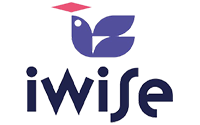The iWISE Olympiad Social Sciences category is for students aged 10 to 24 who are passionate about a social issue and want to develop a project with a solution. Projects should identify a key social studies element, describe how it should be developed, and explain how to initiate, develop, and present a social study project.
Social Sciences category details
– Ages: 10 to 24 years old.
– Format: The competition involves both a virtual and a global final. To qualify for the global final, participants must earn a gold, silver, or bronze medal in a qualifying round, such as a virtual, national, or regional final.
– Submission: Participants submit their work online for the qualifying round. For the global final, they must bring a hard copy or prototype of their project to the exhibition.
– Project type: Students should undertake a research project, which can focus on investigating a specific question or hypothesis through systematic inquiry and data analysis.
– Teams: Projects can be submitted by individuals or groups of up to three members.
Example social issue topics for iWISE projects
The following are examples of social issues that a student could base their iWISE project on:
– Urban poverty: Analyze the effectiveness of local government programs designed to address poverty in your community. Develop a new initiative or business plan that could provide sustainable income and resources for residents.
– Education access: Research disparities in educational opportunities between different socioeconomic groups in your city. Propose a program that utilizes technology or community resources to bridge the gap and provide equal access to learning.
– Youth mental health: Investigate the factors contributing to mental health issues among young people in your area, such as social media pressure or school-related stress. Create a campaign or support network to raise awareness and provide resources for those affected.
– Environmental inequality: Examine how environmental hazards, such as pollution or lack of green spaces, disproportionately affect low-income neighborhoods. Develop a project to advocate for policy changes or create community-led initiatives for environmental justice.
– Immigration and integration: Study the challenges and successes of immigrant communities in integrating into a new society. Your project could propose a new social program or use creative storytelling to increase cultural understanding and reduce discrimination.
Aspiring social scientists can explore the Social Science Category through various subcategories:
Anthropology
Education Studies
Human Behaviour
Human Settlements
Psychology
- Click on the Registration Tab
- Select one of the Virtual Finals
- Fill in your details.
- Fill in your selected category details on the corresponding form.
- Select your available time for the Judging process.
- Submit your zoom judging session.
- Proceed to payment.
- Complete your submission.
Initiation: Select and research a topic
- Find your interest: Choose a social issue you are passionate about and want to solve. This could be local, national, or global.
- Define the problem: Clearly state the social problem you want to address. Your problem statement should be specific, measurable, and relevant.
- Conduct background research: Use academic sources, government data, and credible reports to understand the history, scale, and causes of the issue.
Development: Formulate your solution and project
- Identify key elements: Based on your research, pinpoint the core social studies elements of your issue, such as economic, political, or cultural factors.
- Develop your solution: Brainstorm and design a creative, practical, and innovative solution. For example, if you are addressing poverty, your solution could be a business plan, policy proposal, or community-based program.
- Create your project: Assemble your research and proposed solution into a structured project. A research project with a prototype is a popular option in the iWISE competition.
- Consider the presentation: As you develop your project, think about how to best present your findings and solution. A poster presentation is required for some categories and is a great way to summarize your work.
Presentation: Showcase your work
- Create your presentation: Your presentation should be compelling and clearly communicate the problem, your solution, and your research findings.
- Poster: If required, follow the guidelines for a display poster, making sure the text is clear and readable.
- Verbal message: Prepare a verbal explanation that concisely and effectively conveys your message and the impact of your solution.
- Practice your delivery: Practice your presentation to ensure you can clearly and confidently discuss your project with the judges.
- Attend the exhibition: Bring your physical project or prototype and prepare to engage with judges and other participants at the exhibition.
Requirements for Virtual Finals:
Participants must out together the following documents for their STEM Projects:
Project Abstract
Project Portfolio
PowerPoint Presentation
No theme for this category.
Group submission is up to 3 participants
Requirements for Global Finals:
Participants must put together the following documents for their STEM Projects:
Project Abstract
Project Research Plan
Project Portfolio
Poster
Prototype (If Applicable)
PowerPoint Presentation (Optional)
No theme for this category
Group submission is up to 3 participants.
